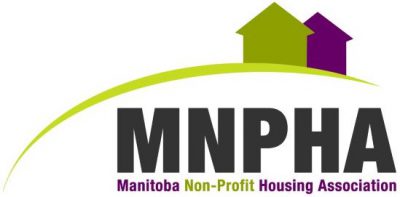MNPHA’s Manitoba Housing Budget Summary, 2025
Manitoba’s Provincial Budget was released March 20, 2025. It includes positive news for the community housing sector, some unknowns, and potential challenges on the horizon.
The Details
The budget for the Housing, Addictions, and Homelessness department has increased from $796m to $854m, or a 7.3% increase. At a time of fiscal constraints and potential economic challenges, this recognizes that housing and investments in ending homelessness are economic drivers for the province and contribute to productivity.
This is detailed to include:
- $78m for Manitoba Housing capital renewal program, allowing the repair of at least 5,000 units. This is a 0.2% increase from last year, and includes:
- $12.4m in existing supply of social housing including $4m additional towards modernization and improvement of sponsor-managed portfolio
- Funding towards capital repairs and renewal of the Urban Indigenous housing portfolio
- Other operating budget highlights for Manitoba Housing include:
- $4m more towards maintenance and repair
- $4.4m to ensure units are available after expiry of agreements
- $73.7m in new funding for “Your Way Home” Plan To End Chronic Homelessness. This total budget is a compilation of spending from different divisions and departments, which may include some of the funding detailed above in the Manitoba Housing capital and operating budgets. Highlights of the funding for the strategy include:
- The purchase of 3 buildings, with Sunshine House, Siloam Mission, and Manitoba Housing owning the buildings to provide transitional housing and wrap around supports;
- $16m to renovate these buildings for transitional housing
- $25m for a Navigation Centre development to connect people experiencing homelessness to supports and housing
- $9m to protect existing stock of social and affordable housing, and rental benefits
- $8.9m for wraparound support services in housing to support those moving form encampments
- $5.6m to support renovation for 270 Manitoba Housing units
- $1m for rent subsidies to transition to market
- The purchase of 3 buildings, with Sunshine House, Siloam Mission, and Manitoba Housing owning the buildings to provide transitional housing and wrap around supports;
The Gaps
While an important increase and demonstration of the province’s commitment to addressing homelessness in a meaningful way, Housing, Addictions, and Homelessness is only 3% of the provincial budget and gaps remain if we want to ensure all Manitobans have a safe, dignified, home they can afford.
All funding models for social housing, including the new block funding model, sponsor management agreements, rent supplements, and the Urban Indigenous housing program, should support flexible and responsive operations, adequately account for capital renewal, and incentivize good business practices. But for most funding programs, the budgets fell behind, and remain behind, the real cost of providing good social housing. Employees in the sector are stretched to their limits, they are dealing urgent safety and security issues in their buildings while trying to create healthy and yet low barrier environments. The lack of a consistent and predictable funding model for supports within community housing means a piecemeal and under-resourced approach.
This year’s funding for capital renewal of existing community housing, specifically Urban Indigenous Housing and Sponsor Managed units, is a positive step building on successes in 2024-25. It will reduce vacancies and preserve the units, and the sector looks forward to working with Manitoba Housing to ensure these funds are directed to efficient and effective improvements that help to build a more independent, capable, and trusted non-profit housing sector.
Finally, there is clear recognition of the need to create more community housing. MNPHA recommends creating at least 1,000 units of community housing each year for the next 10 years to address core housing need, including for Manitoba’s seniors, working poor, and young families. This budget effectively doubles the target of social housings on an annual basis, but still falls short by about 300 units per year.
The Future
The non-profit housing sector aims to be government’s preferred partner in delivering Manitoba’s social housing, and we need adequate capital, operating, and tenant support funding that catches up and keeps pace with both inflation and the immense social challenges tenants are facing.
New funding programs and approaches are more efficient and effective because they are based on trust, partnership, and an ‘all hands on deck’ approach to addressing the housing crisis we face. They are also dependent on partnership with the federal government, and were possible due to the National Housing Strategy agreement between Canada and Manitoba. The non-profit housing sector in Manitoba will need to join the voices of our peers across Canada to take action for community housing at the federal level to secure commitments to sustain and build a resilient housing system.

Recent Comments